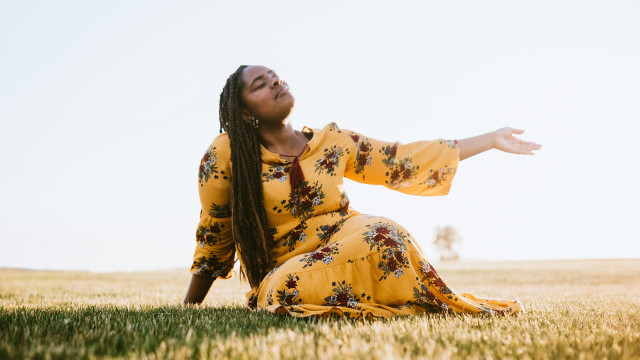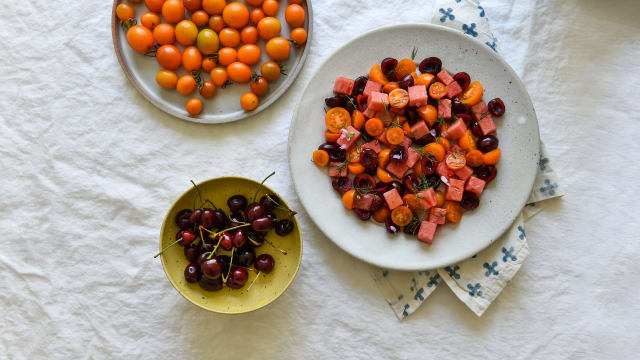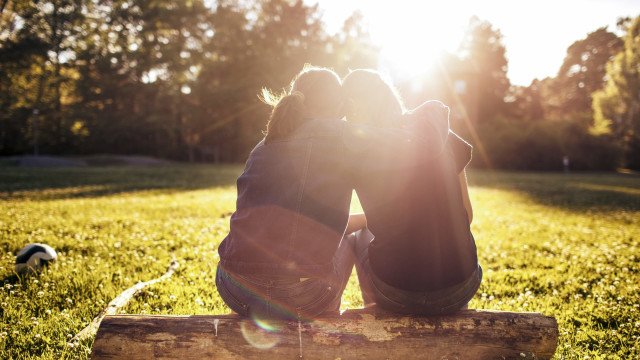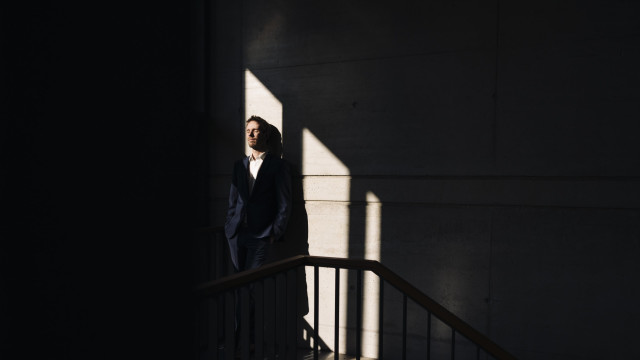How Meditation Supported My Ph.D.

Christine Lustik spent years working in higher education, but the stresses finally took their toll, pushing her out of the field and into mindfulness training. Now she uses her skills to help other higher ed professionals — and people from all walks of life — learn the tools that can help them avoid the burnout she experienced. Here, Lustik talks beginner's doubt, choosing a meditation practice for the day, and how she finally learned to show herself compassion.
Q: How did you first discover meditation?
A: Like many, I entered my career full steam, always striving for more responsibility and growth. I completed a Ph.D while in a very active leadership position and it didn’t take long to start feeling the exhaustion of that process. I wasn’t even halfway through before I started looking for the magic tool to get me through that crazy time. I lived in a small town without a lot of options, but luckily one of my best friends was a yoga teacher and she introduced me to meditation. I struggled because I was that person who was too busy. My mind was too busy. My schedule was too busy. But desperation can be a good thing in that it makes us give into things that we may not think are “us.” I did succeed with that degree, but it took a long time to recover my mental health afterward, and throughout that whole process, meditation was the one thing that stayed and continued to get more consistent until it was finally a daily practice.
Q: How did you find your meditation style, and why does it work so well for you?
A: Yoga was my gateway into meditation, and luckily early on I had an instructor introduce me to loving kindness meditation. That was a hard day because I realized I felt absolutely no warmth toward myself — nothing more than what I should be doing better. It was also a good day because I realized that wasn’t what I desired for myself. I proceeded to practice loving kindness every day for a year, and when I was introduced to mindfulness meditation and understood how it included loving kindness and compassion, it just connected for me.
I tell this story because I would describe my meditation style as secular mindfulness with a heavy side of self-compassion. We are often trained to keep expecting more of ourselves in this world, to keep pushing harder. My meditation style works for me because I’ve found the most important thing I have to do is be aware of where I am in each moment, be compassionate with myself, and remember I am doing the best I can in each moment.
Q: What’s your top tip for a beginning meditator?
A: I work a lot with beginning meditators and it’s hard to pick just one tip! Directions can be very different with different forms of meditation and teachers, but the one thing I want to express is if you are trying, you are doing it right. If you are pausing to notice that your mind is busy, that your body is uncomfortable, that you are filled with doubt — that awareness is step one. And if that feeling that you aren’t doing it right is too overwhelming, know that it is not cheating to use a guided meditation! In fact, I really encourage it in the beginning until you find the type of meditation that you are comfortable with doing yourself. Finding a teacher and a voice that supports you is really a key to making it something you don’t dread.
Q: What does your daily meditation practice look like?
A: My daily meditation practice is most often a sitting practice. I like the mornings, so it’s usually the first thing I do and, being that I live in a climate with all four seasons, it is often inside. That said, I love to be outside and I am lucky enough to have a beautiful labyrinth on my land, so fairly regularly, I choose a walking practice in the labyrinth. Besides the logistics, I start every meditation practice out with asking myself, “What do I need today?” That question helps me choose the practice that will best serve me on that day. If I’m needing equanimity and focus, I may choose a long practice of open awareness. If I’m facing struggles physically, I’ll settle into a body scan. And, while most of my meditations have a form of loving kindness at the end, if my world is feeling chaotic or my self-judgment demons are raising their heads, I’ll embrace a full loving kindness meditation.
Q: What are the greatest benefits you’ve received from meditating?
A: The greatest benefit I have personally received from meditation is to internalize that it is OK to be human and to just keep trying my best. I am going to experience stress, sadness, frustration, and anxiety just as easily as I will experience calm and happiness. But the ability to be OK with that feeling, to show myself some compassion, and to — some of the time — manage to find more space to better choose my reactions and responses around hard moments and conversations has been life-changing to me.
Header photo: nirat/Getty Images
Key Takeaways:
- Having a regular meditation practice can help prevent burnout.
- Try guided meditation if you're getting started with a practice. Explore different types.









